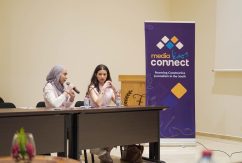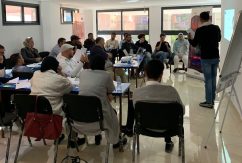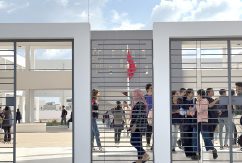TECHLOG: Research & Simulation for Lebanon’s Transport Sector
Hussein Farhat, an experienced fuel truck driver in Beirut, had simulator training introduced, leading to a revelation about the importance of safety on the road. This training is part of TECHLOG, an EU-funded project aiming to enhance collaboration between academia and the transport industry in the Mediterranean. Implemented in Lebanon by CCIB and AUT, the project unifies data to improve transport industry performance and safety, reflecting a broader initiative to bridge the gap between research and industry in the region.
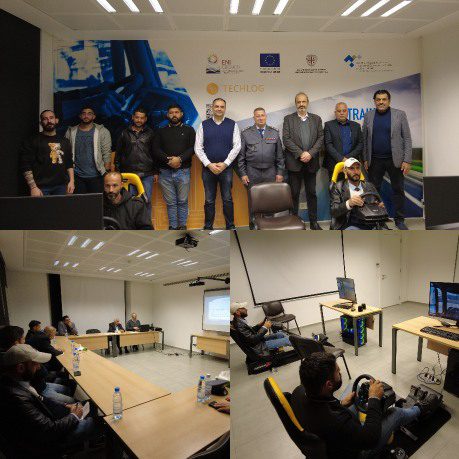

Hussein Farhat’s Experience with Simulator Training through TECHLOG
Hussein Farhat had been driving fuel trucks for years, navigating the chaotic streets of Beirut with a practised hand. Every day, he weaved his way through the hectic traffic while focussing on getting his precious cargo safely to its destination. But despite his experience, there were always challenges.
One day, Hussein’s company, Coral Oil Company Limited, introduced a new training programme using simulators to improve driver performance and safety. Initially sceptical, Hussein entered the simulator without knowing what to expect. As he manoeuvred the virtual lorry through the simulated roads, he began to notice things he had never noticed before.
The tension in his shoulders, the moments of hesitation at busy junctions – all became clear through the immersive experience of the simulator. For the first time, Hussein realised how his own nerves were affecting his driving and he decided to stay calm and focus on the road.
But it was not just about improving his own skills. Hussein also became aware of the general challenges faced by lorry drivers in Lebanon. The poor quality of the roads, the disregard for traffic rules – these were all daily obstacles that made an already demanding job even more difficult.
Through the simulator training, Hussein and his fellow drivers began to develop strategies to overcome these challenges more effectively. They exchanged tips and techniques and learnt from each other’s experiences to become better and safer drivers.
For Hussein, the simulator training was a revelation. It led him to realise how important safety is for himself and for other road users. And for Coral Oil Company Limited, investing in training for their drivers wasn’t just about improving efficiency – it was about prioritising the safety of their employees and the community as a whole.
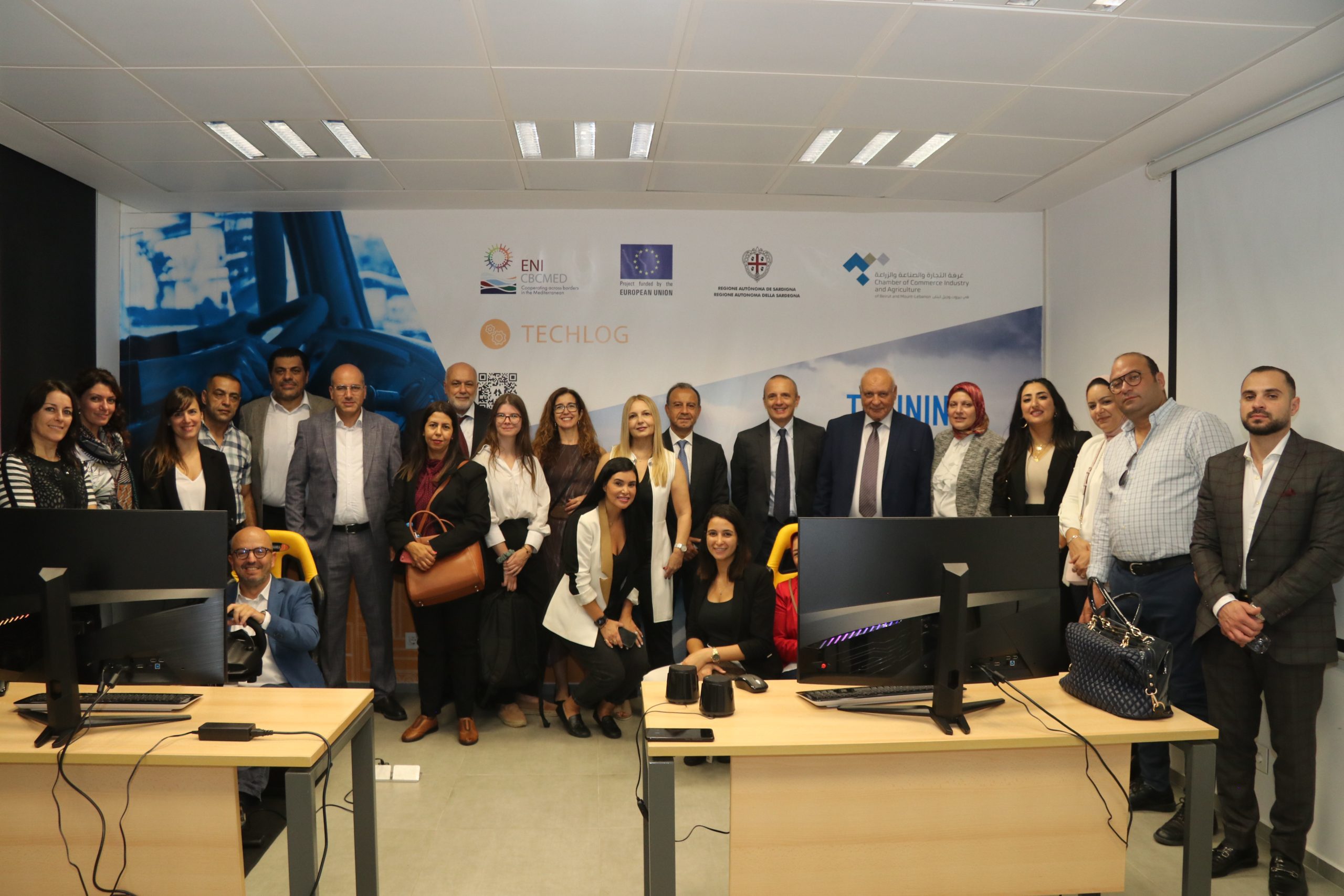

TECHLOG Enhances Training and Collaboration for Truck Drivers in Lebanon
In total, more than 150 truck drivers from 25 different companies used the simulators, thanks to the EU-funded TECHLOG project: Technological Transfer for Logistics Innovation in the Mediterranean, which was carried out as part of the ENI CBC MED programme.
In Lebanon, one of the countries where the project was implemented, the Chamber of Commerce and Industry of Beirut and Mount Lebanon (CCIB) was in charge of the implementation and coordination with the fuel transport companies and the American University of Technology (AUT) was involved in the research at local level.
The data collected was standardised and will be used to improve the performance of the transport industry and make it significantly more environmentally friendly while increasing road safety.
Hana Nehmeh Haidar, Director of Projects and Human Resources at CCIB, says: “The project was very interesting for us because of its originality. It combines industry, research, human resources and innovation.”
“We worked for 36 months and in particular set up a living laboratory with driving simulators at the CCIB. We contacted many companies specialising in the transport of goods, particularly fuels,” she adds, including Coral Oil Company Limited.
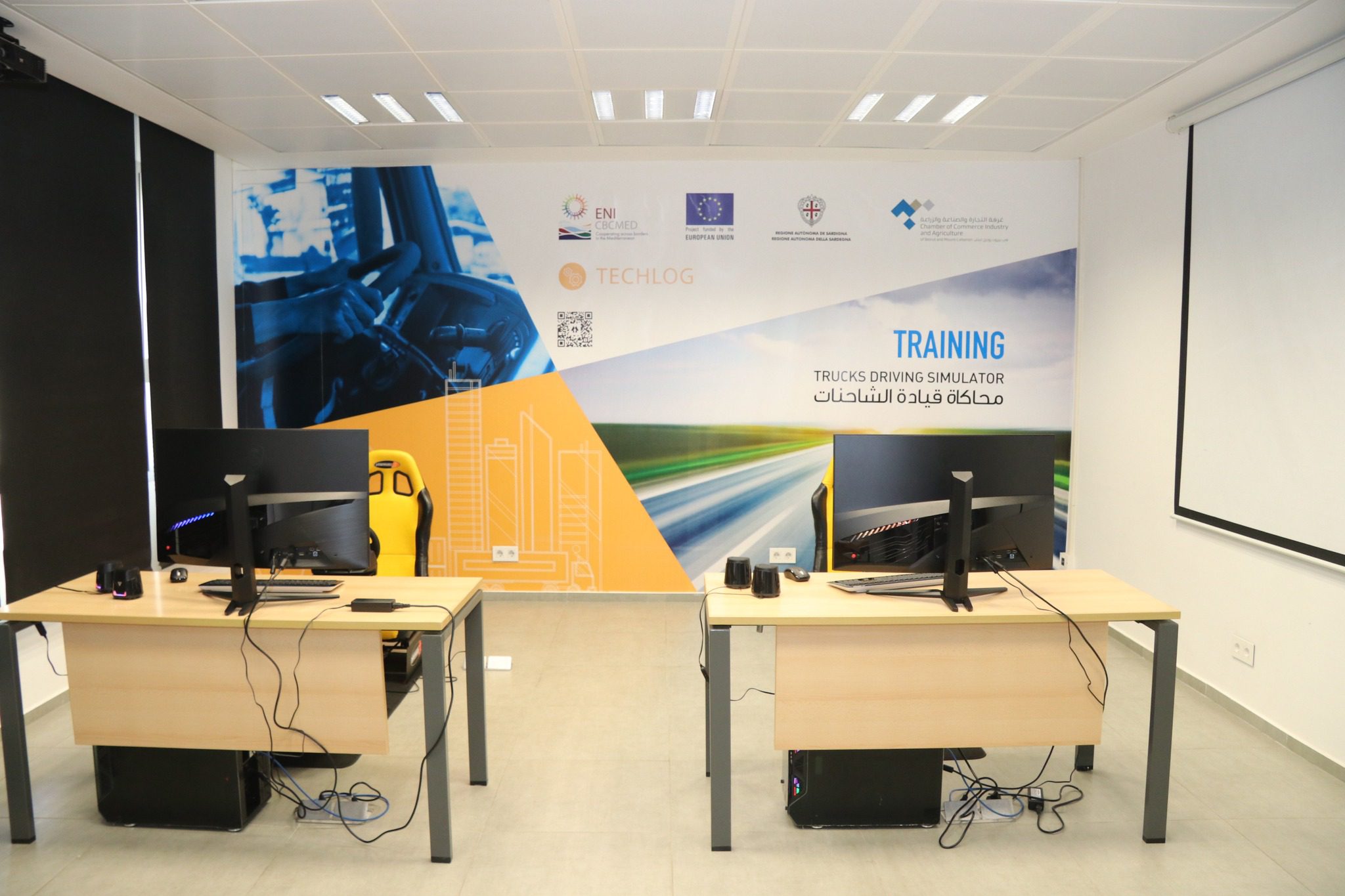

Enhancing Collaboration Between Academia and Transport Industry in the Mediterranean
TECHLOG is working to strengthen the links between the academic world and the transport industry in the Mediterranean region. The project spans Italy, Egypt, Spain, Lebanon and Tunisia and promotes joint technology transfer initiatives (TTI) to achieve common quality standards for transport and port professionals.
“This project was launched because most sectors in the Mediterranean suffer from poor links between research, development and training on the one hand and the real economy on the other. Unfortunately, many of the tools used and developed by research and academic actors do not match the real needs of the market. Ports are no exception,” explains Dr Esmat Karadsheh, coordinator of the Eastern Branch Office of the ENI CBC MED programme.
Dr Karadsheh underlines the fact that TECHLOG aims “to “consolidate the links between research and industry in the transport sector by creating a permanent cross-border EU-MED space where research organisations and the transport industry jointly develop, test and exchange new technology transfer initiatives (TTI) based on advanced simulation technologies.”
“On a practical level, TECHLOG supports education, research, technological development and innovation and prioritises technology transfer and the commercialisation of research results,” he adds.
Over the last three years, TECHLOG has set in motion a knowledge-based development based on innovation and advanced simulation technologies to contribute to the growth of the EU med-transport economy. Thanks to TECHLOG, funded by the EU, transport companies and institutions have been given a reference point for co-design and technology transfer in a real-life environment to improve transport performance and competitiveness.
